From ₹2 million to ₹250 billion—At an age when many plan for a stable retirement, BVR Mohan Reddy dreamt of creating jobs. He founded Cyient (formerly Infotech Enterprises), a multinational technology company that generated 18,000 high-paying jobs in India and earned $7.7 billion in foreign exchange. Established in 1991, Reddy’s journey of ambition began much earlier, with his entrepreneurial spirit igniting in 1971. EFY’s Yashasvini Razdan delves into the life of BVR Mohan Reddy, tracing the path from his first spark of inspiration to the creation of a thriving enterprise.
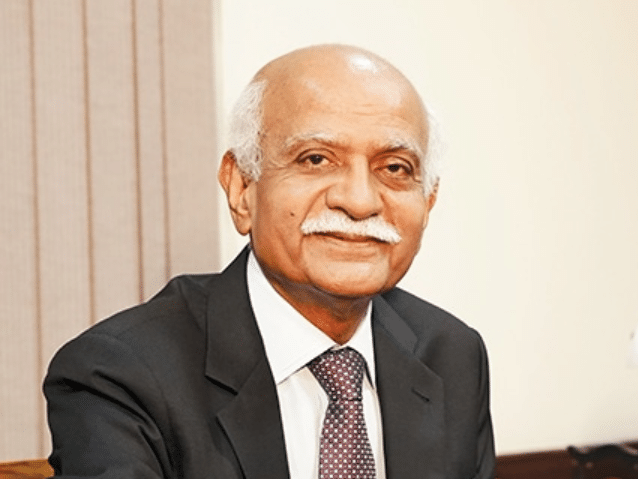
Born to a middle-class police officer, Nagireddy Bodanapu, and Venkata Subba Ratna Kumari Bodanapu, Mohan was the second of four children. In an orderly household, his mother encouraged him to pursue excellence. Fascinated by road rollers, seven-year-old Mohan was driven towards engineering, and for a long time, the household would echo baby Mohan’s plans of becoming a road roller engineer.
“I was always fascinated by the ‘How?’ so I never gave up on that engineering dream. My elder sister, Uma, took up medicine, so as a rite of passage, as it was in those days, I took up engineering, gladly so!” he reminisces.
Mohan’s mother, a lady of discipline and determination, was highly instrumental in ensuring all her kids achieved success. “I once remember hiding my mathematics mark sheet from her, as I had not studied hard for the test and got an average score. Sharp as she was, nothing escaped her notice. Soon, she figured out what was wrong. That day, I got one of my earliest lessons on the importance of hard work. And a warning, too!” he recollects fondly.
The dreaming of a dream
Being the son of a district superintendent, discipline and good moral values were the cornerstone of Mohan’s character formation, but the constant transfers every three years made it difficult for Mohan to stay in touch with his friends. “Every three years it was a new school, new friends, and the old friends were left behind. This lacuna strengthened the bond between my younger sister, Kishori, and I, despite a significant age gap—she’s six years younger. Uma is just a year older than me, so we were academic competitors,” he recalls.
The dreams of 1960s middle-class Indian parents were aimed at their children becoming doctors or engineers, which were seen as secure jobs. Mohan’s mother decided he would become an engineer and his sister a doctor. “I used to joke with my sister, saying if I didn’t make it into engineering, I would study medicine—it seemed much easier for those competing in that field,” he laughs.
Following his mother’s guidance, Mohan strove for perfection, wanting to be the best at everything he did. His teachers recognised his leadership skills, and Mohan earned the title and position of class captain every year. While the accolades and laurels never stopped, for Mohan, something still felt amiss. Pondering over his existence and purpose in life, Mohan felt the need to be different—to make a unique mark and benefit society as a whole. “I did not have the skills to become an artist or a musician. I could have been a scientist. I thought about it a lot and decided to become an entrepreneur—a creator of jobs! That is how I would earn money.”
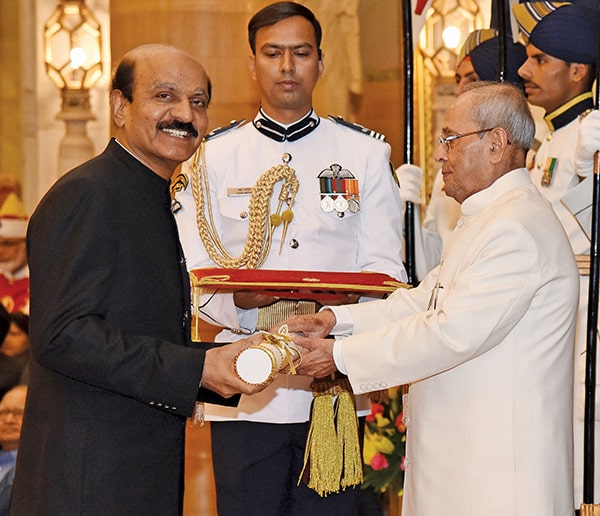
An entrepreneur in the making
The year was 1974. Mohan after graduating in mechanical engineering from the prestigious College of Engineering, Kakinada (Andhra University – Visakhapatnam), went on to pursue M.Tech in Industrial Engineering at the eminent Indian Institute of Technology, Kanpur. He dreamt of becoming a job creator, but the Licence Raj’s regulatory challenges and the labyrinthine bureaucracy proposed a ginormous roadblock. The energies of the investors were directed towards winning licences rather than capturing markets or producing superior goods. In such a situation, Mohan did not have the finances or the reach to build a business from scratch. Instead, he focused on enabling himself and continued his education. “The biggest asset that my parents gave me was my education, and it continues to be my strength, even today. I am always learning. I never stopped,” he says.
With just an ambition and the urge to learn, Mohan embarked on gaining experience before putting himself out in the wild. Starting with DCM Group, Mohan, for three years with Shriram Refrigeration, a DCM Group Company, Hyderabad, joining the company as a graduate trainee, Mohan continued working with the company until 1976.
After recalling his first job experience, Mohan says, “I had a mechanical and industrial engineering background, but as a senior management trainee, I had to run a diesel engine assembly shop, managing around 300 workers and getting them to be productive,” says Mohan. At 23, even as a trainee, Mohan was priming his brain to develop strategies to streamline the production and shipping of 450 diesel engines throughout a six-day working week.
“We used to have a weekly off on Monday because of the power considerations in Hyderabad. So, on Sunday afternoons, I used to draft and send a bill of materials listing all the components I would need to produce 450 diesel engines by the coming week. In those days, everything was handwritten as there wasn’t any Excel,” he elaborates
Be it cylinders or piston rings—six piston rings per engine—by four o’clock every Sunday evening, Mohan would gather all his documentation listing all the parts that were not available and travel to the railway station to catch a 7:30 PM train from Hyderabad to Kolhapur, Maharashtra, which is where most of the suppliers were based. “I did not have a reservation, so I carried a sheaf of newspapers in my hand; not for reading, but to spread in the third class compartment in front of the toilet, to sleep,” he narrates.
Collecting the parts the next morning, Mohan travelled back to Hyderabad on Monday night, ready with all the components for production on Tuesday morning. “The production at the assembly line could not ever stop for any reason!” he exclaims.
The company never paid any extra money to this young trainee for all this extra hustle-bustle, but Lala Shri Ram noticed the young man’s efforts and acknowledged him as a star performer. The young entrepreneur in Mohan Reddy was slowly coming into his own. “My job was completed on time, and the assembly line never came to a standstill—this gave me immense satisfaction. The task never mattered; it was my task, and that was what was important. I developed an entrepreneurial mindset by taking ownership of every task assigned to me and making up my mind to better my best performance every time,” he proudly states.
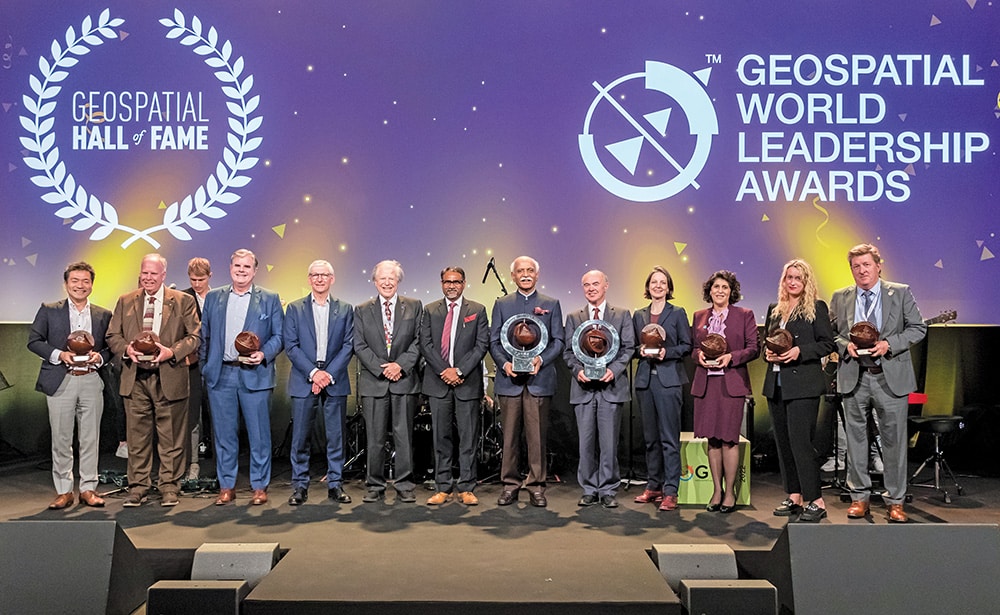
After completing three years in industry learning all about industry operations, human resources management, and production planning, Mohan pursued a second post-graduate degree in Industrial Operations and Management from the University of Michigan. While the dream of becoming an entrepreneur was still alive, Mohan’s education played a pertinent role in solidifying his plans and igniting the fire. “During my time there, I did a small course in business management taught by Prof. LaRue Hosmer at the Ross School of Entrepreneurship, who taught this course via case studies. I learnt a lot about how to run a small business and gained a lot of confidence in my abilities with my teacher’s encouragement. To date, I believe that taking up that course was a significant turning point in my life, that made me believe in my dream of setting up my own business and being an entrepreneur,” he elucidates.
The University of Michigan set the genesis for Mohan’s plans, and he figured that computers were going to be the future. “I returned to India in 1977 and started looking for a computer-related job. In those days, it was called electronic data processing (EDP). I, a mechanical and industrial engineer, was all into electronics data processing. My learning did not end after college. I joined MICO (Motor Industries Company Ltd, MICO Bosch, and now Robert Bosch) as a systems analyst. My job was all about systems design and programming!” he exclaims.
Terming it the stone age of computers, Mohan narrates how he started learning how to program in Autocoder and everything about computers. “From diesel engines, I had dived into computer software, working day and night. It was amazing learning about leadership, working in teams, and adapting to different work environments,” he says.
With significant experience learning about operations and computer systems, Mohan made his next jump into sales. His decisions were questioned, but Mohan was not one to be deterred by what people would say. “I had handled operations and systems, and now I wanted to handle sales. I was determined to cultivate a rich experience in every aspect of business. I convinced Shiv Nadar, from Hindustan Computers Limited (HCL), that I would bring my best to his team, and he recruited me as an area sales manager. I worked for him for three years, learning the ropes of sales as an introvert. I was great at one-on-one conversations, but convincing a large group of people was a totally new challenge. Eventually, I became the best salesman and then the best national sales manager for HCL,” he reminisces.
“After working for two and half years and gaining enough knowledge about sales operations, I decided it was time to think about my entrepreneurial journey.”
While funds ran low, Mohan’s aspirations were skyrocketing. “In the late 1970s, during the microprocessor revolution, private companies like DCM, HCL, ORG, and the public sector company ECIL began manufacturing microprocessor-based and mini computers. By the early 1980s, I believed India could become a significant computer market and wanted to become an entrepreneur by manufacturing PCs,” he says.
In 1982, with insufficient money and no proper technology, went to get a licence from the government of India to manufacture computers. The free market did not exist, and there were a million roadblocks to procuring licences. But who can deter the determined? Then, Mohan came across an alternative: the Tata Group was investing in a technology owned by Dr Raj Reddy, a researcher based out of Carnegie Mellon University, and was looking for a founder-CEO. “It seemed like a promising opportunity for me,” says Mohan.
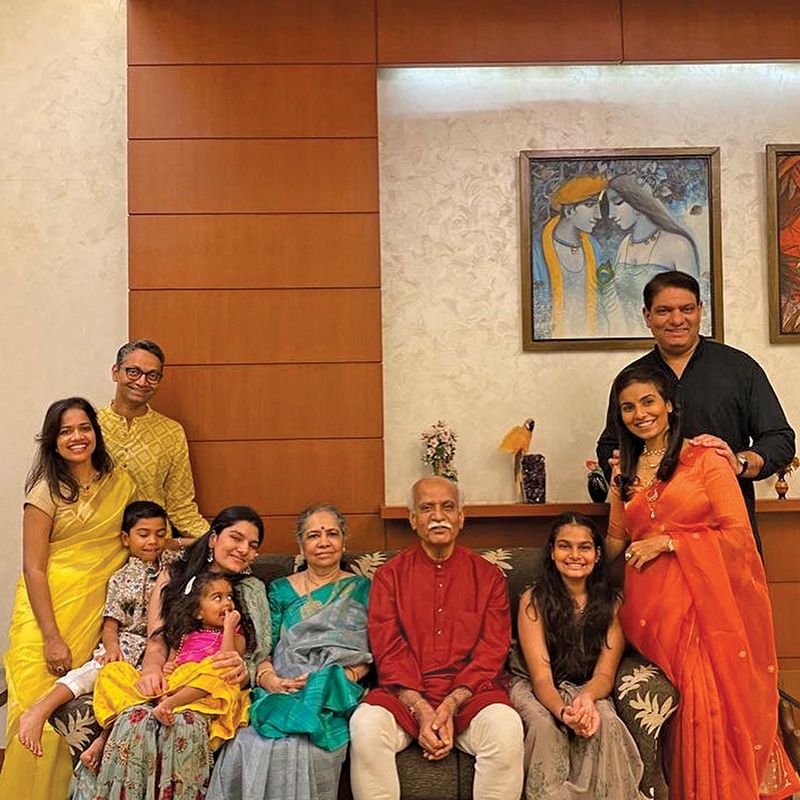
OMC was a systems integration company that built CPU boxes in India and integrated them with imported peripherals. The systems were optionally loaded with CAD/CAM software. The product targeted the nascent CAD/CAM market. But just being a CEO wasn’t enough. Mohan knew his experience and skill set deserved more, so he asked for the managing director (MD) position as well. “Initially, they refused because it was a board position, but I stuck to my statement and let them know that they wouldn’t have a CEO if they refused,” he says.
Recognising his leadership skills, the Tata Group agreed to his demands, and he became the first CEO-MD in the company’s history at the age of 30. “Becoming managing director of a Tata Group company was unprecedented. I dedicated nearly a decade to this role, culminating as I approached my fortieth birthday. It was then when I decided to re-ignite the fire for a dream I had been harbouring since 1974,” he narrates.
At the helm of the CAD/CAM revolution in India, Mohan oversaw the setup of an OMC electronics manufacturing plant in Hyderabad equipped with PCB component stuffing machines, wave soldering machines, and testing equipment. “We broadened our product range significantly by introducing a PC line with CAD software for low-end drafting solutions in large volumes,” he recounts.
From ₹2 million to ₹250 billion
Donning a cap with multiple feathers—operations, systems design, sales and CEO-MD—Mohan was ready to unfurl his wings and let his dreams take flight. While he advocates for developing a sense of ownership for one’s work, the feeling of building something of his own and working to raise it to touch the skies did not leave him. “I had spent 18 years working for others, always feeling like I was working for myself. I have no regrets; that is how life went by,” he declares.
Rome wasn’t built in a day, nor was Cyient (InfoTech Enterprises Limited then). With just 2 million rupees in his pocket, a dream, and the will to make a mark, Mohan embarked on a journey to build a design engineering services company that would one day employ more than 18,000 people and be valued around ₹250 billion. In 2014, with the thesis—“what we design can lead us to manufacturing (DLM)” the company added electronics manufacturing capabilities by acquiring Rangsons Electronics. Today, the electronics manufacturing business is an independent company (CYIENT DLM) and is listed on NSE/BSE. CYIENT DLM has electronics manufacturing facilities in Mysore and Hyderabad and mechanical components manufacturing in Bangalore. He attributes this success to the support of his wife, Sucharitha.
“My wife initially had reservations about my plans, but once convinced, she became my strongest supporter throughout this journey. She took care of our family—looking after our two children. My son Krishna (then 14) and daughter Vaishnavi (then 10) were in their formative years when I embarked on this new path at 40. She managed the household, allowing me to pursue my ambitions. Sometimes, it amazes me to reflect on all those years when I spent over 100 nights away from home, constantly travelling to acquire customers,” he ponders.
Mohan marvels at how Sucharitha encouraged him to focus on growing the business without letting him worry about their children. “She was a director on the company board but always managed to balance family and work. Reflecting on it now, I wish I could have spent some more time with my kids, especially seeing how well they are doing with their own children today, but some compromises had to be made for a better future,” he reflects.
“We worked tirelessly and methodically to build our company from the ground up while ensuring that we still instil our children with the same values that we prided ourselves over—hard work, integrity, and sincerity,” says Mohan.
The couple prioritised financial security and the division of responsibilities between themselves. “As the MD-CEO of OMC Computers, I had two cars with drivers at home. However, as a startup, we couldn’t afford such luxuries. My wife and I decided to outline our needs and cut down on all unnecessary expenditures. It was quite challenging in the beginning,” he recalls.
Together, the couple decided to invest in a commercial property using their savings and an old property they owned. As a fun fact, Mohan reveals the name of the first lessee of their commercial property. “I leased the property to TCS (Tata Consultancy Services) for a long-term contract!” he smiles.
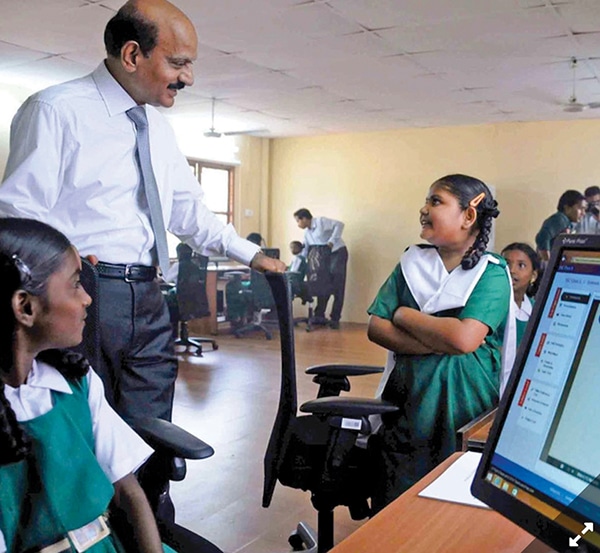
Trudging tirelessly through triumphs and troughs
Mohan reveals that Azim Premji offered him to join Wipro. “He said that I embody the values of a middle-class Tamil Brahmin—‘God-fearing and diligent.’ Despite his offer, I was driven by my own ambitions and chose to remain an entrepreneur and build my business,” he says. Driven and dedicated, the Hyderabad Management Association recognised his achievements and felicitated him with the Entrepreneur of the Year award in 1996.
A charmer that he has always been, from charming his teachers to his customers, Mohan smiles as he says, “I continue to charm everyone, and my customers love me!” Recalling his first big customer contract, he narrates, “I convinced Ed Crowe, the senior vice-president of Pratt and Whitney, that our company was the best choice for business, over a glass of Golconda Ruby red wine. This was back in 2000 when wine wasn’t popular in the country; my friends used to joke that the wine I drank was chemical and not real,” he laughs, recalling the incident.
Crowe walked into Mohan’s office the morning after and awarded him the contract. “When I asked what impressed him the most, he said, ‘Your honesty and the stories you narrated.’ He chose our small company over larger competitors for the project. Since then, over 1000 people have been engaged through this account, which is currently a $100 million account for us! ” he proudly states.
So, how does he keep up with the hustle at 73? “I make it a point to exercise daily and keep myself sharp. An hour and a half of daily exercise with half-hour on stretching, half hour on the cross-trainer and another half hour on stationary bike. I wake up at 6:30 am and follow a strict exercise routine while watching BBC from 6:30 AM to 7:00 AM, India Today from 7:00 AM to 7:30 AM, and then some Telugu news while answering emails and messages till 8:00 AM, After which I have a cup of steaming south Indian filter coffee and between 9:00 AM to 9:30 AM, I head to the office,” he smiles as he reveals the secret to his charm.
While Mohan’s life has been an ongoing pursuit of excellence, failures on the way did not discourage him. Mohan shares an incident where a former employee was involved in a terrorist attack at Glasgow Airport. This incident led to unwarranted media scrutiny, alleging that Indian companies harboured terrorists. “Despite such challenges, we maintained transparency with our customers, assuring them of the background checks we conducted on all our employees. This strengthened our trust with clients,” he says.
Choosing to persevere over giving up, Mohan refused to let any obstacle stop him from reaching the pinnacle of success. “Failures are not setbacks but opportunities to learn and grow. I compete with myself. What I achieve today, I must surpass tomorrow, and each subsequent effort must be better than the last. This pursuit of excellence defines my approach and sets me apart. Challenges will inevitably arise, but I embrace them as part of the natural process,” he declares.
Mohan held the reins of his flourishing business for twenty years before preparing to hand them over to his son, Krishna. “Despite physical differences—my son being much taller than me structurally—people often remark on how similar we are in values and demeanour,” he smiles.
Acknowledging the company’s progress because of his son’s management style, he says, “As a first-generation entrepreneur, I was hands-on and meticulous, while my son, being second-generation, delegates more and operates on a different platform. His approach led to faster growth for the company compared to my cautious and conservative style.”
| A few of Mohan Reddy’s favourites |
| Book: Good to Great by Jim Collins Movie: Baahubali; recommends Malayali cinema Actress: Mrunal Thakur Actor: Dulquer Salman Food: Steamed rice with fish curry Vehicle: His Mercedes |
A remarkable legacy
With more than 15 awards, including the Padma Shri in 2017 for his contributions to the Indian industry and more than 10 honorary doctorates, BVR Mohan Reddy has won multiple accolades. Despite that, he believes, “What you leave behind is not your name, but what you do.”
After years of running on the job, he has dedicated his life to transforming the electronics ecosystem with his knowledge and experience. From chairing education councils to being an administrator at reputed educational institutions, Mohan strives for excellence in education for all. “I ensured my kids studied hard and went to reputed institutions. My driver’s children have been studying on my account for years. His eldest daughter is set to graduate class 12, and I am worrying about college admissions for her as well,” he shares.
With an unflinching belief in his dreams, armed with his education and diligence to work his way to the top, Mohan Reddy has created a legacy for future entrepreneurs willing to do what it takes to achieve success and learn from his life.
“Life isn’t always easy, but I find meaning in every situation. Life offers two choices—to surrender or keep striving. I return each day with renewed determination to overcome challenges and uphold my values,” he concludes.






